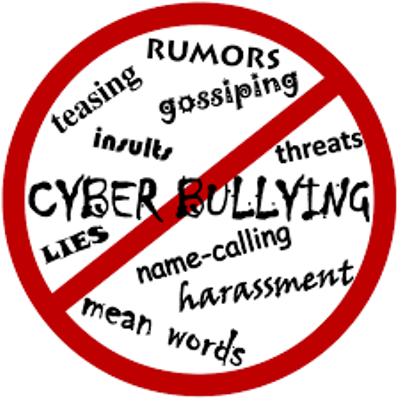What’s the biggest fear that can prevent a child from confiding in their parents that they have been cyberbullied?
Possibly that their internet privileges will be taken away. Or that the parent will overreact, or underreact.
Today, digital technology is a central part of most young peoples’ lives and it is not going anywhere. This technology is a step in the right direction but has brought with it big problems and cyberbullying is one of them.
Cyberbullying is on the rise and this should be a huge concern not only for kids who are potential victims but also parents. One look at social platforms, especially the comments section, confirms this.
Like face-to-face bullying, cyberbullying can have serious effects on the physical and mental health of victims. The thought of own child encountering online harassment should be enough to send any parent into a panic There’s a lot of predators out here!
Somethings need to be done before its too late. Parents have to assume a role in the fight against cyberbullying.
Parents should not just sit, crossed arms and legs, and command the education ministry to look into this issue. It is better for them to be proactive in taking steps to manage this vice instead of waiting for other systems to step in.
A good number of those PTA meetings and school-wide events need to add one item to their agenda: cyberbullying. While at it, the conversations should start early. Once these kids become teenagers, it gets significantly harder because they attain their own identity.
Prevention and possible cure
The fight against cyberbullying is not an easy one. We have already lost the battle but who says war cannot be won?
Perhaps the first step is to start the conversation at home. A parent can start by defining cyberbullying and spelling out its prevalence and effects.
Parents must first take steps to prevent cyberbullying before it starts or becomes worse. This may involve monitoring and limiting a child’s online activities by using parental control apps on your child’s gadget, knowing whom the child communicates with online, talking to kids about cyberbullying and assuring them that they can come to you in case they encounter anything inappropriate or upsetting, establishing rules for internet use and discussing rules for online safety, asking them not to respond to bullies, etc. Anything really as long as it effectively addresses cyberbullying and online safety.
The more parents and their kids talk about cyberbullying, the better prepared they will be if it happens.
If your child has been bullied, give them the necessary support. Talk to the child and inform the school’s guidance counsellor and teacher and request them to keep an eye on cyberbullies within the school. Of course, this is assuming that the institution has a zero-tolerance policy for any form of bullying.
If things get worse, you can seek help from other people including a religious leader or therapist. If the child is at the risk of physical or emotional harm, immediately report this matter to the nearest law enforcement agency. It is important to have print-outs of all instances of cyberbullying as this will strengthen your case. The recently signed Cybercrimes bill protects your child and spells out heavy penalties for the guilty.
It can be difficult for any parent to learn that their child is bullying others. Most parents are often in denial and the first instinct is to defend their kids. However, it’s important to take steps to end the negative behaviour before it has serious and long-term consequences on your child and others.
The first step is to understand what is influencing this negative behaviour. Often, kids pick such vices from home or peers. Once you understand their life and influences, the easier you’ll be able to identify the source of the problem.
Next, talk to the child. Educate them about bullying and let them know that cyberbullying is unacceptable. Do not allow them to justify their behaviour as this may create a pattern. Help and encourage them to develop empathy for others by challenging them to look at their actions from the victim’s perspective.
Another strategy would be to teach them how to cope with pressure, disappointments, stress, anxiety, worry, etc. Find great ways to relieve these emotions. This may include sports, taking walks, spending time with loved ones, swimming, and many more.
If these tips don’t work, you can seek help from a trusted relative or friend. If things escalate, a trained professional should be involved.
Attending face-to-face meetings and/or training organized by various stakeholders in their local communities, including schools, can also help.
Main objectives of such organized meetings:
- Give parents and guardians a safe place to talk about parenting concerns in the digital world.
- Expose parents to the startling statistics of cyberbullying.
- Address the short-term and long-term effects of cyberbullying ranging from poor school performance, lack of self-esteem, depression, aggressive behaviour towards others, suicidal thoughts, etc.
- Expose this group to research-based best practices for children’s screen time and tools for handling parent-child interactions.
- Limit and monitor their online activities and usage. Parents need to be curious about their child’s online activities. This should be part of their to-do list.
- Help families address tech-related challenges, that touch on online safety
- Lay emphasis on the need for digital literacy for parents. They need to learn how various social networking platforms work.
- Empower parents and families with resources that they can bring into their own homes and share with family and friends.
Tech giants especially those that report high cases of this vice should chip in. And some are already doing so. Facebook has announced that it has implemented a new plan to combat cyberbullying by partnering with PTA Connected. Facebook and PTA Connected will host 200 Digital Family Community Events in all 50 states (US) to help parents understand issues surrounding the ever-growing problem of cyberbullying. We need such initiatives in Kenya and other affected countries.
In the end, it is important that parents, schools, and communities collaborate to understand all facets of bullying, including its consequences and find ways to fight against cyberbullying, and hopefully eradicate, this vice in both schools and communities.







Leave a Reply